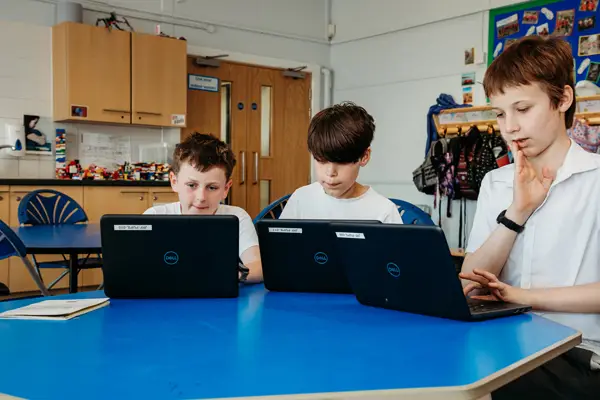
Remote education provision: information for parents
This information is intended to provide clarity and transparency to children and parents or carers about what to expect from remote education if local restrictions require entire cohorts (or bubbles) to remain at home.
For details of what to expect where individual children are self-isolating, please see the final section of this page.
Senior leaders responsible for remote education at John Rankin: Neda Stephenson and
Louise Rance
The remote curriculum: what is taught to children at home
A pupil’s first day or two of being educated remotely might look different from our standard approach, while we take all necessary actions to prepare for a longer period of remote teaching.
From the first day your child is sent home you will be directed to a range of learning activities on our website. This will include independent ways of developing key skills such as phonics, spelling and core maths skills practice.
From the first day you will have access to learning materials for the current week which will be available to familiarise yourself with. These will be used when online live teaching begins. Live sessions will begin within 2 days of a bubble/school closure.
We will broadly teach the same well planned, well-sequenced curriculum remotely as we do in school wherever possible and appropriate. However, we will need to make some adaptations in some of our input and tasks in subjects such as art, PE and music.
How long can I expect work set by the school to take my child each day?
We expect that remote education (including remote teaching and independent work) will take children broadly the following number of hours each day:
Primary school – aged children | We will set activities so that children have meaningful and ambitious work each day in a number of different subjects. As a minimum, on average, we will set the following; EYFS – between 1 and 2 hours of work each day KS1 – 3 hours of work each day. KS2 – 4 hours of work each day. |
How will my child access any online remote education you are providing?
Our nursery and reception children will access learning through Tapestry, our EYFS online learning platform.
In years 1 to 6 our children will access learning through Zoom with additional links on our website. Zoom invites and work activities will be emailed to families by the class teacher. These dedicated class emails will also enable us to give feedback on learning and for families to ask questions and seek support.
We recognise that some children may not have suitable online access at home. We take the following approaches to support those children to access remote education:
If you have difficulty accessing online remote learning, please let us know. We have a range of solutions dependent on the issue;
We use a combination of the following approaches to teach children remotely:
What are your expectations for my child’s engagement and the support that we as parents and carers should provide at home?
Feedback can take many forms and may not always mean extensive written comments for individual children. Our approach to feeding back on pupil work is as follows:
Verbal feedback will be given during the small group tutorials, providing an opportunity for teachers to share specific feedback on learning and address any common misconceptions that have arisen.
Children will receive personal responses to all work through the class email ac-count. Teachers will gauge how well children are progressing through the cur-riculum and support where necessary.
Specific queries or questions can also be addressed through the class email.
Class teachers will also provide greater depth marking of some work at least once a week. These will be made clear to you and your child. In these scenarios, more detailed feedback will be given against objectives and targets and it may be appropriate for some developmental points and next steps to be given. If your child has any queries regarding these comments, please ensure they are shared and discussed with the class teacher who will be able to support further.
How will you work with me to help my child who needs additional support from adults at home to access remote education?
We recognise that some children, for example some children with special educational needs and disabilities (SEND), may not be able to access remote education without support from adults at home. We acknowledge the difficulties this may place on families, and we will work with parents and carers to support those children in the following ways:
Where individual children need to self-isolate but the majority of their peer group remains in school, how remote education is provided will likely differ from the approach for whole groups. This is due to the challenges of teaching children both at home and in school.
The first two days would be similar to the wider approach;
Following the first two days we would then do the following;